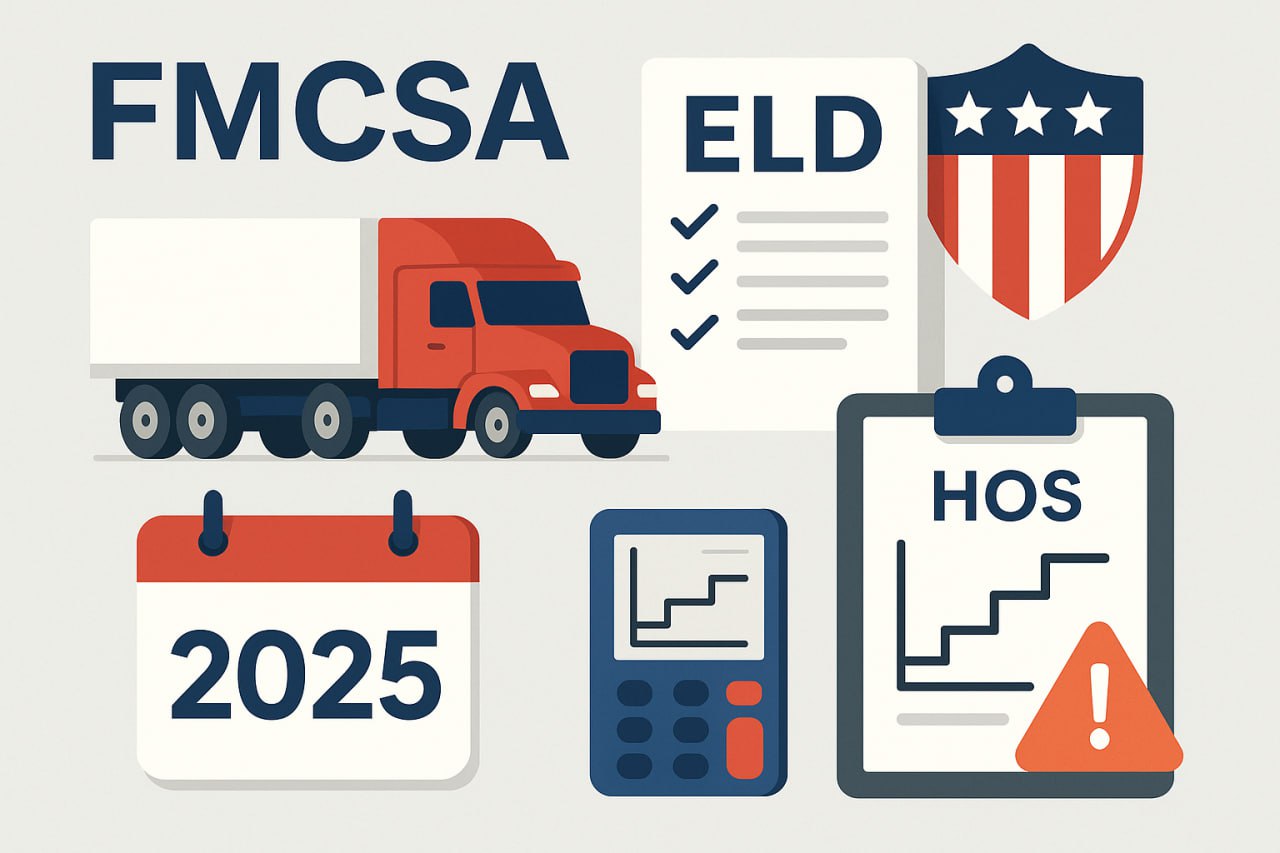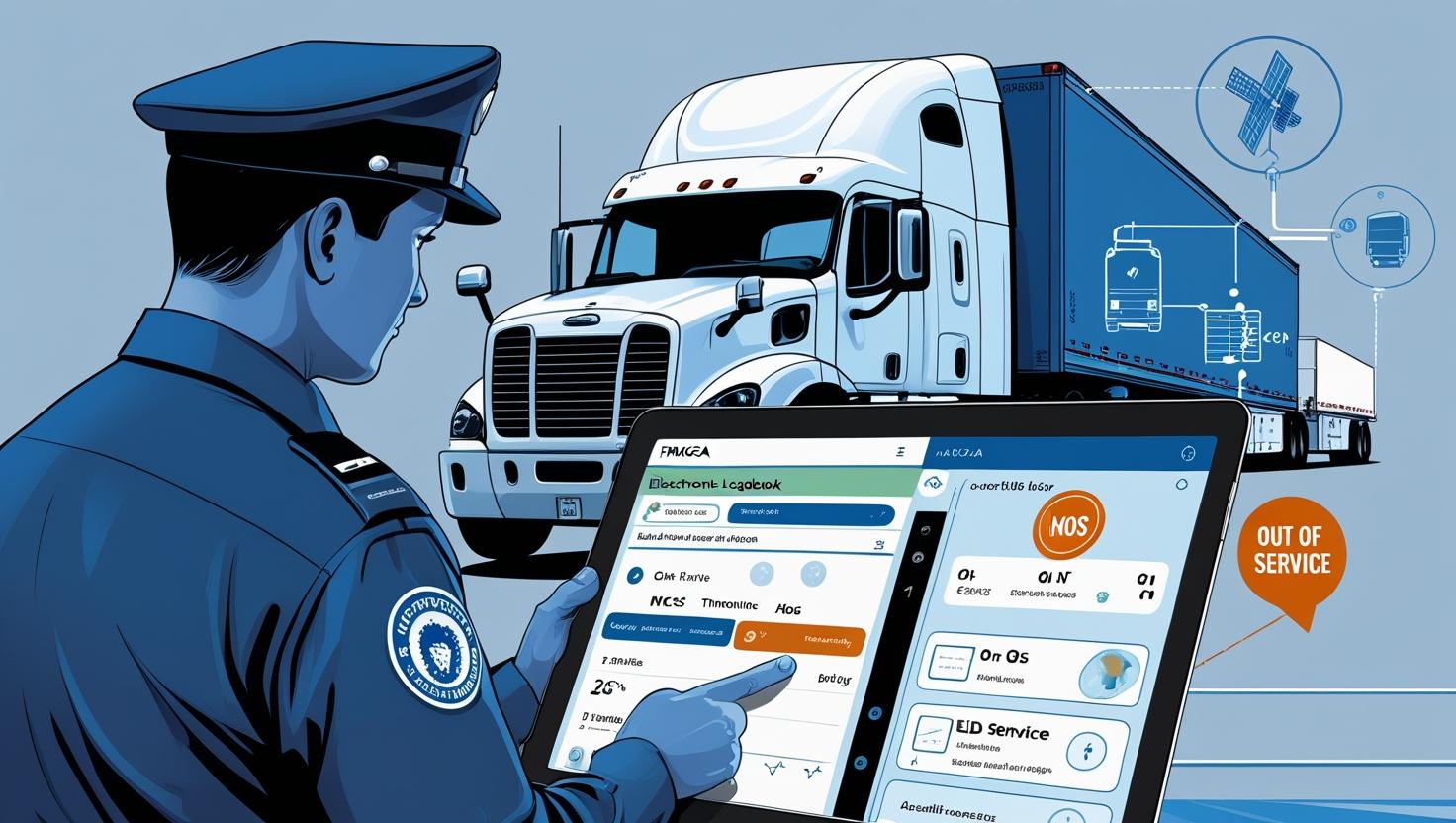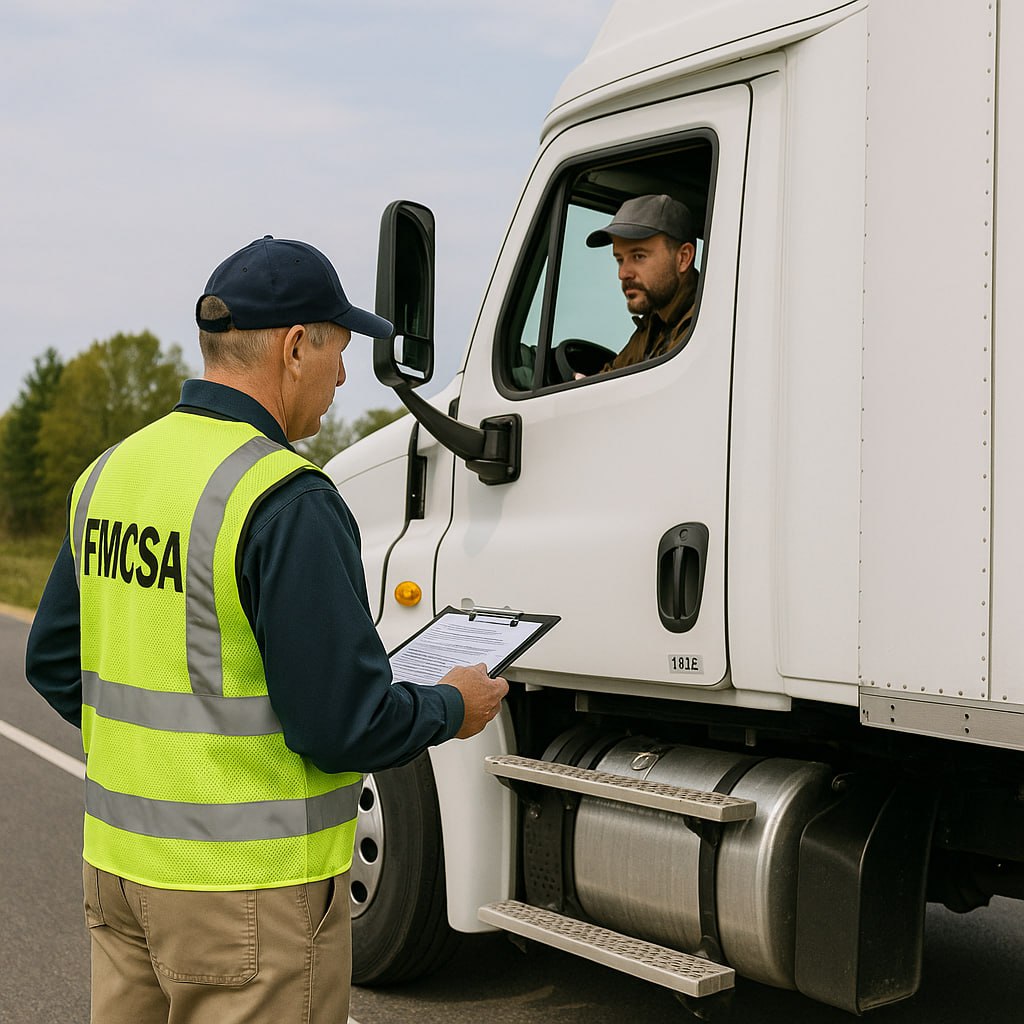
3. Strengthened HOS Audits and FMCSA Monitoring
FMCSA increasingly relies on digital analytics to detect violations in log-keeping. Fleets with repeated errors, drivers frequently editing logs, and suspicious movement patterns are especially scrutinized.
“FMCSA uses data from roadside inspections, audits, and crash records to monitor carriers and flag potential Hours-of-Service violations.”
— FMCSA Safety Measurement System
Common violations include:
- Unauthorized changes to records,
- Discrepancies between GPS data and HOS logs,
- Systematic exceeding of allowed driving hours.
What to do:
Implement weekly or monthly internal audits of HOS logs, use analytic tools to identify anomalies, and train drivers on correct log editing practices to comply with regulations.
4. Requirements for Older Vehicles
Until 2025, vehicles with engines manufactured before 2000 were exempt from ELD use due to lack of electronic engine control modules (ECM). New FMCSA clarifications narrow this exemption.
“The ELD mandate applies to most CMVs, regardless of age, unless the vehicle is equipped with a pre-2000 engine not supported by an ECM.”
— FMCSA ELD FAQs
Risk:
Many fleets have not updated VIN data or verified actual engine manufacture year. Vehicles with replaced engines often no longer qualify for exemption.
What to do:
Check all previously exempt vehicles against updated criteria. If needed, install adapted ELDs that work without ECM connection (using GPS and manual event logging).

5. Increased Fines and Accountability
FMCSA is expanding enforcement of financial penalties not only for absence of ELD but also for serious misuse, including:
- Refusal or failure to transfer logs,
- Use of incomplete or falsified logs,
- Continued use of revoked devices.
“Drivers who fail to produce ELD records during an inspection may be placed out of service.”
— CVSA Inspection Bulletin
Fines may range from $1,000 to $10,000 per violation for drivers and companies.
What to do:
Set up automatic alerts for log issues, keep change histories, and verify accurate HOS data entry, especially during driver changes or night shifts.
6. Upcoming Technical Standard Update — ELD 2.0
FMCSA is revising technical requirements for ELDs. The next generation of devices is expected to include:
- Automatic idle time recording,
- Integration with dash cameras,
- Enhanced telemetry (accelerometers, geofencing),
- Improved protection against log editing or manipulation.
“FMCSA is reviewing feedback on ELD technical specifications with the goal of enhancing data integrity and safety oversight.”
— Federal Register, May 2025
What to do:
When selecting ELDs in 2025, consider devices prepared for future updates. Preference should be given to solutions already supporting video analytics, geofencing, and automatic event recording.






